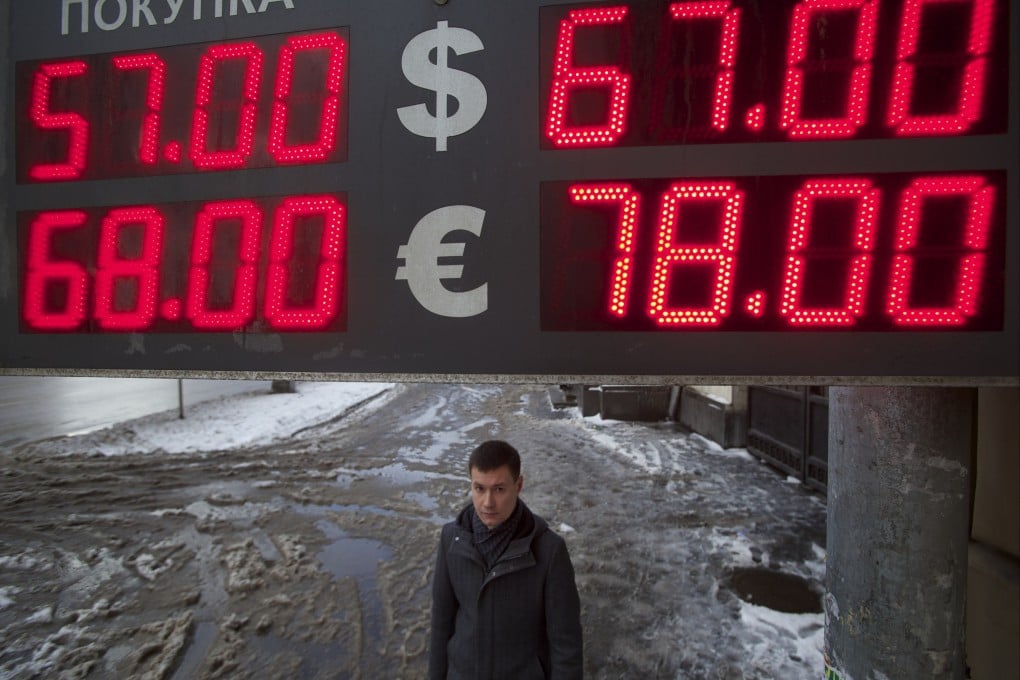Ukraine crisis: Russia’s central bank hikes key interest rate to two-decade high of 20 per cent to shield economy from Western financial sanctions
- The interest rate will increase from 9.5 per cent to 20 per cent, the central bank said in a statement
- The central bank also temporarily banned brokers from selling securities held by foreigners starting Monday on the Moscow Exchange

The Bank of Russia raised its key interest rate to the highest in almost two decades and imposed some controls on the flow of capital in a bid to shield the economy from the impact of sweeping Western sanctions that include penalties on the regulator itself.
The interest rate will increase from 9.5 per cent to 20 per cent, the central bank said in a statement before rouble trading was due to open at 10am local time. It also temporarily banned brokers from selling securities held by foreigners starting Monday on the Moscow Exchange, without specifying which securities the ban applies to. Authorities also introduced mandatory hard-currency revenues sales for exporters.
The emergency steps represent the most forceful measures taken by Russia after the latest round of sanctions, with the US and the European Union agreeing to potentially block access to much of the US$640 billion the country’s central bank has built up to protect the economy.
Russia’s invasion of Ukraine has spurred a flight from the nation’s markets, and the rouble was indicated 26 per cent weaker in offshore trading on Monday as market makers from Sydney to Hong Kong pulled back. It dropped 8 per cent at the open on the Moscow Exchange, immediately hitting the trading limit of 90 per dollar.
Governor Elvira Nabiullina is due to speak at 4pm in Moscow, the central bank said.
“Russian authorities have to prevent fire-sales of Russian securities to prevent panic,” said Commerzbank AG strategist Ulrich Leuchtmann. It’s “something which is certainly harmful in the long run, but which Russian authorities seem to prefer given the risk of an even more significant rouble collapse.”